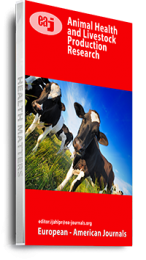The objective of the study was to determine some mineral composition of local salt licks (Toka) produced from crop residues in Adamawa State, Nigeria. Five (5) local salt blocks made from Maize cobs, Beni-seed straws, Sorghum stover, Cowpea husk and Maize stover were analyzed. The mineral contents were analyzed using Triple Acid Digestion Methods (TADM). The results showed that, local salt licks produced from crop residues majorly contained seven (7) macro-minerals namely: sodium (Na), potassium (K), calcium (Ca), chlorine (Cl), magnesium (Mg), phosphorus (P) and sulfur (S) and ten (10) micro minerals or trace elements namely: iron (Fe), zinc (Zn), copper (Cu), manganese (Mn), iodine (I), molybdenum (Mo), cobalt (Co), selenium (Se), fluorine (Fl) and chromium (Cr). The results further showed that, the local salt licks produced from crop residues had little or no heavy metals. All livestock require some percentage of mineral elements for cellular respiration, nervous system development, protein synthesis, metabolism and reproductive purposes. Macro and micro elements are important components of livestock ration which aid in the prevention of mineral deficiencies. Therefore, the local salt licks produced from crop residues could be used as mineral supplements to improve palatability and acceptability in animal feeds thereby, increasing sustainable livestock performance and productivity in the region. This could also conveniently substitute the un-sustainable imported, highly expensive mineral licks used for livestock production in the state and Nigeria as a whole.
Citation: Adamu S. M. and Kubkomawa, H. I. (2022) Mineral Composition of Local Salt Licks (Toka) in Adamawa State, Nigeria, International Journal of Animal and Livestock Production Research, Vol. 6, No.1, pp.17-35
Keywords: Adamawa State., Nigeria, mineral composition, salt licks, sustainable livestock production

